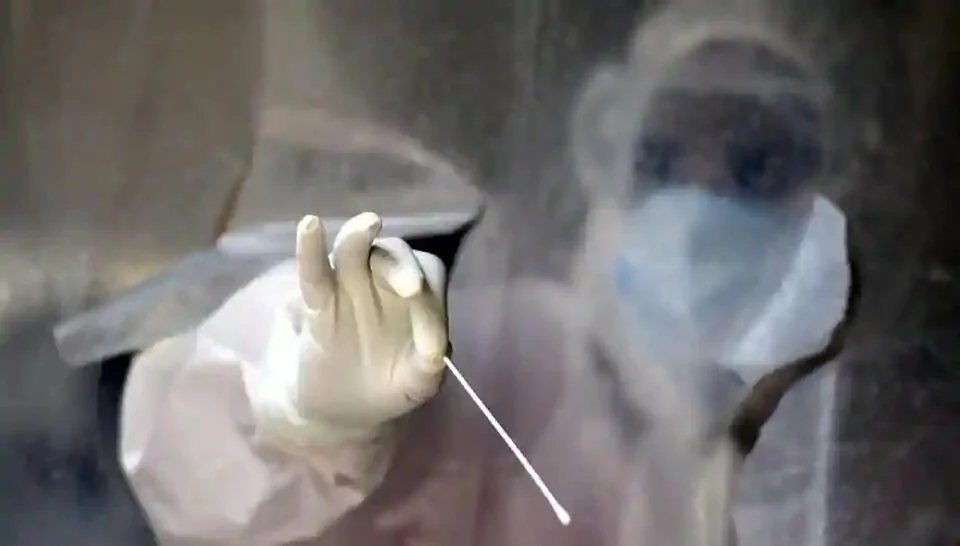Covid-19 pandemic: Volunteers are lining up to be infected with the coronavirus
When Gavriel Kleinwaks was a toddler, she was captivated by the story of Jonas Salk, the vaccine pioneer who examined a possible polio shot on himself, his spouse and youngsters in 1953. Nationwide trials seen as the largest public-health experiment ever later proved that it labored.
Now Kleinwaks is signing up to participate in one other high-stakes experiment. The doctoral pupil on the University of Colorado is one in all nearly 30,000 volunteers keen to intentionally expose themselves to the coronavirus to test a possible vaccine, ought to researchers resolve to proceed.
With the world determined to finish the pandemic, the thought of purposely infecting folks with a harmful pathogen that has no treatment is fueling a debate over what sort of sacrifice is suitable and the advantages such trials might deliver. Known as human-challenge research, these exams can hasten analysis by putting volunteers within the path of the virus, fairly than ready for unintended publicity.
The controversial method might grow to be mandatory in some unspecified time in the future because the illness ebbs in some cities, making it tougher to guage pictures within the extra typical manner, based on Pascal Soriot, chief government officer of drugmaker AstraZeneca Plc. The firm is working with the University of Oxford on some of the superior vaccines in opposition to the virus.
No Cure
The lack of a drug to save lots of people who find themselves critically sick is among the fundamental moral considerations about human-challenge trials, together with a lack of expertise a few virus that’s killed nearly half 1,000,000 folks in a number of months.
Kleinwaks says she wrestled with doubts at first, however regularly grew extra snug with the thought after assessing the dangers. Fueling her determination to volunteer, she says, is a lesson from the Talmud — saving one life is akin to saving your entire world — and a need to assist finish the outbreak.
“We are all at risk of exposure every time we step out of our own home,” the 23-year-old engineering pupil mentioned. “Nobody is guaranteed to be safe.”
A challenge targeted on human problem research led by the University of Antwerp and the Free University of Brussels attracted 20 million euros ($22 million) in Belgian authorities funding, the establishments mentioned. The initiative to ascertain a facility and labs to test vaccines has drawn curiosity from drug corporations, based on the schools.
Brazil’s Volunteers
Although the thought is gaining extra consideration, a partnership launched by the U.S. National Institutes of Health isn’t planning to assist human-challenge research for Covid-19, the company mentioned in an electronic mail. There needs to be sufficient pure transmission of the virus within the U.S. to hold out exams this summer season, it mentioned.
The manner vaccines are normally examined is by inoculating numerous folks and evaluating their an infection charges to these from a inhabitants of unvaccinated volunteers. But ready for each teams to grow to be uncovered to the sickness of their common day by day lives to attract conclusions about whether or not the vaccine works can take months and even years.
The initiative that attracted Kleinwaks is organized by 1DaySooner, a bunch that advocates on behalf of people that need to be a part of problem research. The group has held discussions with potential companions and vaccine producers in a bid to start out manufacturing of the virus, mentioned Josh Morrison, one in all its founders.
More than 1 / 4 of the volunteers are in Brazil, the place the coronavirus is spreading quick. 1DaySooner has contacted vaccine builders planning final-stage research there to recommend they think about folks on its checklist for typical research, too, based on Morrison.
Volunteers’ private motivations fluctuate, however many cite a way of frequent good. Jason Crowell, a lawyer in London, even persuaded his reluctant spouse to affix him after watching the coronavirus declare the lives of greater than 40,000 folks in Britain, together with one in all his mates.
‘Feel Useful’
Gloria Lee, a violinist, discovered in regards to the alternative to affix the problem trial motion after the pandemic pressured organizers to cancel a recital set for early May at New York University, her debut solo within the metropolis, together with different performances.
“I started to think about what I could do to feel useful and to hopefully be part of the effort to put this virus to rest,” she mentioned. “It’s the most important thing I could do at this moment.”
Besides accelerating vaccine growth, human-challenge research might in the end assist make pictures more practical, based on the World Health Organization, which has outlined the factors that might have to be met to hold out the exams. Proponents be aware that the method was used safely for illnesses equivalent to malaria, typhoid, cholera in addition to the flu.
Some consultants are calling for a cautious method. Rushing trials with out totally contemplating the affect they might have in getting vaccines to the general public extra rapidly could be a mistake, however “it is worth laying the groundwork now,” Seema Shah, an ethics specialist at Northwestern University’s Feinberg School of Medicine, wrote with others within the New York Times earlier this month.
“We have to know that volunteers were not exposed to risk in vain,” they wrote. “Public trust in vaccines and research depend on it.”
(This story has been printed from a wire company feed with out modifications to the textual content. Only the headline has been modified.)
Follow extra tales on Facebook and Twitter
Source
